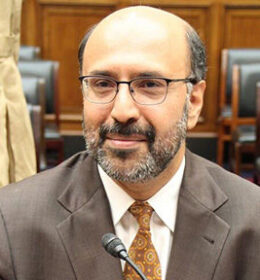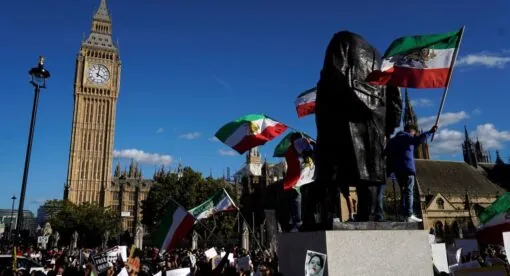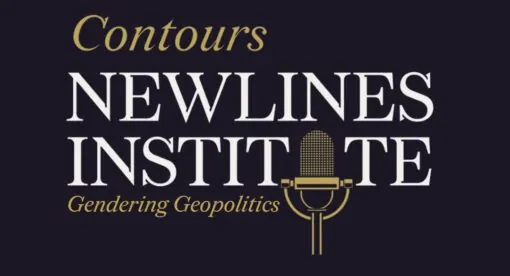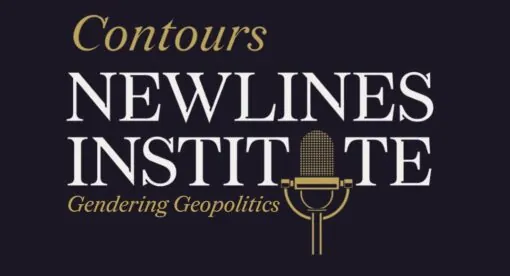Image courtesy of Pakistan Foreign Office
Developing an intra-Afghan understanding is a necessary step for peacebuilding in Afghanistan, but it cannot happen with Afghanistan’s neighbors pulling the various groups in different directions. U.S. Special Representative for Afghanistan Reconciliation, Zalmay Khalilzad, had a clear mandate to cut a deal with the Taliban and, to give him his due, he pursued it with vigor. The much awaited next step entails a difficult negotiation process between the jihadist group and the Afghan state. However, a regional settlement, while complicated, is absolutely required if Afghanistan is to ever fully taste security and stability. An intra-Afghan settlement will be contingent on this regional component. Pakistan will have to play a crucial role in the shaping of such a multilateral agreement.
Iran, Russia, China, and India will also have to be a part of such a settlement. This may sound overly ambitious at this point, but peace in Afghanistan will be key for not only pushing back extremist tendencies in Southwest Asia but also for regional trade and economic connectivity. The regional players are likely to pursue this path not only to stabilize Afghanistan but also to eliminate the threats the Islamic State and other transnational militant entities allied with the Taliban pose in Afghanistan and beyond.
Pakistan’s Role
Pakistan is seen as a loyal patron of the Afghan Taliban, and in Pakistan’s security circles this reputation is cherished. In a conversation about Pakistan’s support for the Taliban, a former senior Pakistani official told this author, “Our Taliban policy has saved Pakistan.” This comment reflects Pakistan’s worldview.
Islamabad will have to be fully on board to achieve regional conciliation. By the same token, Pakistan lacks influence over the anti-Taliban forces in Afghanistan and will need Tehran and New Delhi, among others, to reciprocate wholeheartedly for any regional peace initiative to take off.
How all of this can play out in the coming months depends on the political and security dynamics in South Asia. Here are 10 relevant aspects of the challenge to show what is at stake and what the possibilities are:
- Pakistan enjoys influence over the Afghan Taliban, but the relationship is more complex than we may assume. The Taliban’s old guard respects Pakistan, and their contacts with Pakistan’s military-intelligence complex are deep-rooted. However, the old guard (that includes Mullah Baradar, the Haqqanis and Mullah Haibatullah) is struggling constantly to maintain its control over young field commanders, aligned drug smuggling networks, and a new generation of insurgents inspired by a variety of local interests – some of which are not always in line with those of Taliban. To believe that Pakistan can control all these elements of Taliban is an exaggerated assessment.
- The Trump Administration appreciates Pakistan’s help in reaching the present arrangement with the Taliban, but it also believes that Pakistan can deliver even more. Washington is right. Islamabad is playing it safe by not committing to serve as a guarantor for anyone while strongly encouraging the elements it has control over (like Haqqanis) to live up to the commitments made to Washington. Hedging your bets is a standard operating procedure in statecraft.
- In supporting the Taliban, Pakistan is earnestly expecting that its core security interests will be taken care of. To this end, it will push the Taliban to guarantee that Indian influence in Afghanistan ends. The Taliban can only do that if they either control Kabul or have significant influence in Afghan foreign policymaking. The Taliban so far have proved to be a deadly insurgent group with a capacity to manage a sustained terrorism campaign. Running or participating in a government, the next logical expectation, if they are able to effectively negotiate with Kabul, is a different ball game altogether. More so, anti-Taliban personnel currently dominate the civil bureaucracy and military in Afghanistan, and they will resist a Taliban takeover. The Taliban have not shown much success in holding an urban center for long, either. Hence an open confrontation will only facilitate a civil war, bringing more destruction. The Taliban will follow their own instincts and calculus in making these choices. Pakistan is expected to support them in whatever they do rather than attempt to dictate its own terms.
- The Taliban’s growing influence in Kabul will be a strategic victory for Pakistan’s military and intelligence, but it will be a highly problematic sign for Pakistan’s political landscape. Seeing the Taliban as triumphant, Pakistan’s religious parties will gain momentum and will push Pakistan toward more conservatism and extremism. The progressive and moderate political forces in Pakistan are legitimately concerned about such a scenario.
- With a significant reduction of international funds, an expected development after withdrawal of foreign forces, Kabul will need the services of trained and well equipped police and military more than ever. Pakistan will likely offer its training services to balance the influence of Afghan security officials trained in India in recent years. The Taliban will encounter the India-Pakistan rivalry wherever they will turn. This will deepen factionalization, which will be devastating for Afghan forces’ professionalism.
- We must not forget that U.S. negotiations with the Taliban were held in Doha, Qatar. This led to the rise of Qatar Shura – or perhaps the “New” Taliban – giving the Taliban a sanctuary that is safer, easily accessible via air (rather than through rugged mountains) and more comfortable than Pakistan’s tribal areas, Peshawar, or Quetta’s outskirts. Doha has not invested in the Taliban for nothing. It competes with Saudi Arabia, Iran, Turkey, the United Arab Emirates, and of course Pakistan to nurture and fund its own local allies or proxies. The crux is that Pakistan is no longer the sole sponsor available to the Taliban. They have options. And they need support from relatively wealthy backers who can support the Taliban’s Afghanistan if it comes to that. Many Taliban leaders – Mullah Zaeef and even Mullah Baradar, for instance – have become more critical of Pakistan’s way of handling the Taliban, and they are comfortable with relatively less intrusive sponsors.
- Pakistan, to its credit, refined its counterterrorism capabilities over the years. Its military campaigns pushed out Pakistani Taliban and many al Qaeda remnants from its tribal belt, located on its side of the Durand line. Pakistan cannot afford to see a resurgence of Pakistani and Punjabi Talib. The hanging sword of Damocles in the form of the Financial Action Task Force blacklisting is another disincentive. Pakistan is striving hard to improve its capacity in tackling money laundering and terrorism financing. The Taliban’s return to Kabul will also have a spillover effect on the empowerment of Pakistan’s local militant groups – a projection that Pakistan’s security officials would like to dismiss. Any denial of this would be a strategic blunder.
- In a significant move, Pakistan had incorporated the semi-autonomous Federally Administered Tribal Areas into mainstream Pakistan by merging the region into the Khyber Pakhtunkhwa province in May 2018. The merger is progressing slowly and has faced many hiccups, but the area has produced a secular and vibrant activist group: the Pashtun Tahafuz Movement, or Pashtun Protection Movement. The group is holding the state accountable by raising its voice against the manipulation of Pashtuns and the use of their land for various agendas, including sponsorship of elements of the Taliban. These factors restrict Pakistan’s ability to support the Afghan Taliban in a way that it has in recent decades.
- India’s right-wing populism has added another potent element to South Asia’s vulnerabilities. Distress in the disputed Kashmir region has peaked in recent months, adding to regional instability. Gauging the mood of his country, Pakistani Prime Minister Imran Khan commendably declared: “If someone from Pakistan goes to India to fight … he will be the first to do an injustice to Kashmiris, he will be the enemy of Kashmiris.” Pakistan must seriously consider fully extending this new policy to its western border with Afghanistan. Pakistan’s civilian leadership is enjoying unusually good relations with its military leadership, so Khan can do things that previous Pakistani political leaders dared not. It is in Pakistan’s interest to push its friends in the Taliban ranks to be realistic and accommodative in their parleys with Kabul. India should do the same for the other side of the divide. Viewing this as a zero-sum game will be counterproductive for everyone in the region.
- The argument that the Taliban’s Qatar Shura is more savvy and can bring all factions together into a political party sounds idealistic, and at best might be true only with respect to dealings with the United States. The rank and file of Taliban forces have not shown any indications about moderation or reform yet. The Taliban’s internal differences will not be an easy puzzle to resolve.
The status quo is untenable without a doubt, but all the plausible alternatives are also pregnant with instability and fears of chaos. The facts show that while the people of Afghanistan are craving peace, the Taliban are hungry for power, as are the political elites currently residing in Kabul. Use of force will only delay the solution. Intra-Afghan negotiations will be noisy and time consuming and will need credible and neutral mediators. It will be a process, likely consuming years, as was the case in Colombia (four years), Nepal (five years), Northern Ireland (four years), and Guatemala (three years).
For the United States, it is worth acknowledging as well as emphasizing it to all its partner nations that no one country or group can single-handedly direct the course of history in Afghanistan. The path to peace and reconciliation in Afghanistan will require a collective regional effort and continued international support. Punitive financial action to make Kabul fall in line is an unsustainable policy option. Moreover, the U.S. administration must raise the level and intensity of engagement in the region by moving from its various bilateral parleys to a multinational and regional initiative geared toward developing a broader regional understanding.
Dr. Hassan Abbas is a Senior Fellow at the Newlines Institute and a distinguished professor of international relations at the Near East South Asia Centre for Strategic Studies at the National Defense University (NDU) in Washington, D.C. His forthcoming book is titled “The Prophet’s Heir” (Yale University Press, 2021). He Tweets at @watandost.
The views expressed in this article are those of the author and not an official policy or position of the Newlines Institute, NDU, or the U.S. Department of Defense.







